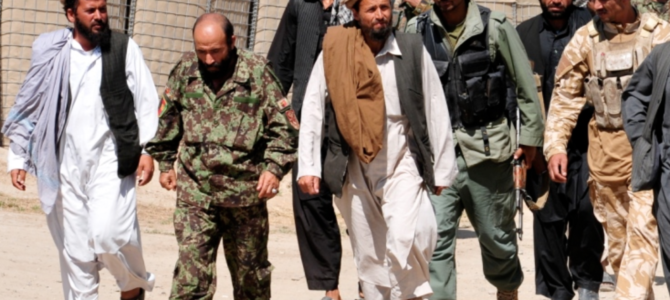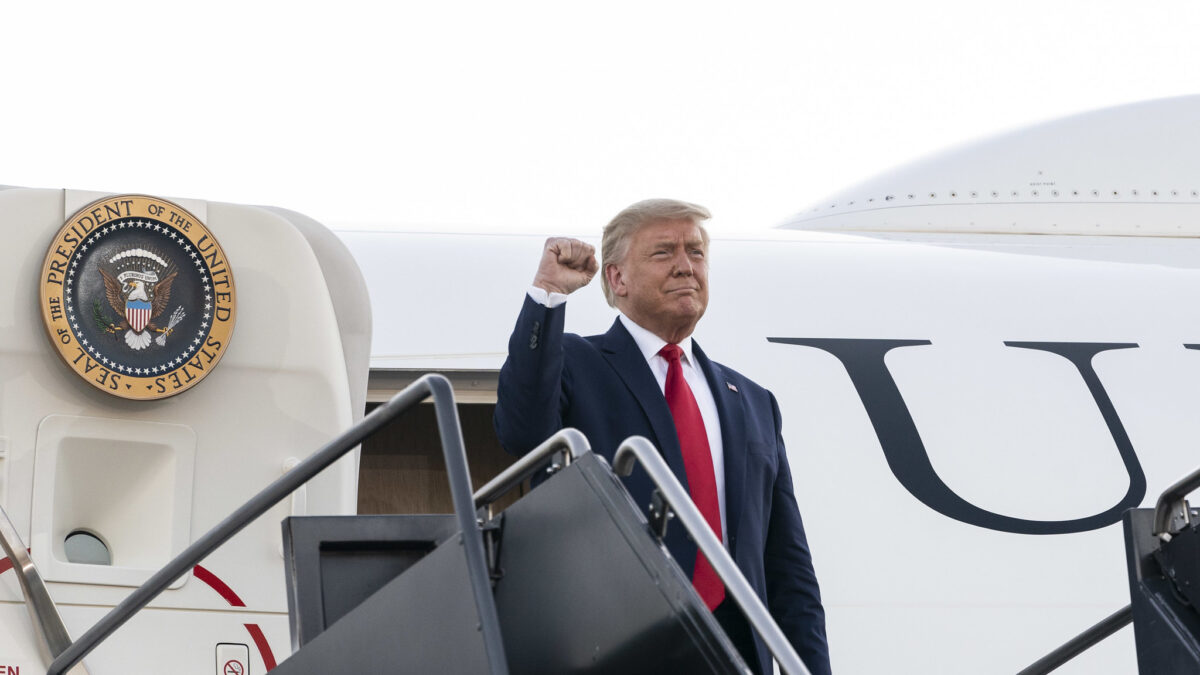
After 19 years of bloodshed and conflict, the United States and the Taliban formalized an agreement Saturday to initiate the peaceful conclusion of America’s longest war.
I deployed to Afghanistan in 2012 as a defense civilian intelligence officer after serving in the Army in Iraq. I and many others saw the on-the-ground realities firsthand, and for the majority of us the prospect of peace is a welcome one.
The conflict has been at a stalemate for the better part of a decade with no military solution in sight. Some detractors of President Trump’s efforts to negotiate with the Taliban believe doing so undermines the sacrifices made by many American’s over the last two decades. They couldn’t be more wrong.
The U.S. mission in Afghanistan was clear from the beginning of the conflict: 1) Degrade or destroy al-Qaida so it no longer poses a threat to the United States and her allies, and 2) set the conditions for a democratically elected Afghan government to replace the recently deposed Taliban, who had refused to hand over Osama bin Laden and dismantle the terrorist networks operating within the country. However, that would all be easier said than done.
America’s Sacrifices in Afghanistan Were Not in Vain
While the United States and allied forces all but decimated al-Qaeda early on and quickly overthrew the Taliban, the U.S. invasion gave rise to a nationwide insurgency that has lasted almost 20 years. The U.S. and her North Atlantic Treaty Organization allies ended up in a protracted conflict with Taliban insurgents while trying to nation-build. Thousands of Americans were killed during that time, and many more were wounded.
To that end, the mission in Afghanistan hasn’t changed, and the negotiated political settlement in the agreement signed this past weekend outlines the same objectives as the U.S. mission. The agreement calls for a conditions-based U.S. withdrawal from Afghanistan designed to ensure that terrorist groups can’t use Afghanistan as an operations base, the Taliban are reintegrated into Afghan society and government, the Taliban ceases support and cooperation with terrorist organizations, and hostilities cease.
We must not forget the Taliban only came to the table because of the sacrifices many brave Americans have made. In light of this and the fact that the U.S. objectives remain the same, it is wrong to say our sacrifices were made in vain. Those who fought and those who died made lasting peace possible. The debt of gratitude we owe them can never be repaid. We must never forget that.
Trump’s desire for a negotiated peace agreement has the support of many prominent national security professionals, including Democrats and establishment Republicans, a rare feat in the bitterly divided capital. This past September, Michèle Flournoy, former Obama undersecretary of defense for policy, and Stephen Hadley, a national security adviser to President George W. Bush, co-authored an opinion article for The Washington Post in which they reinforced the need for a negotiated settlement to the war.
Flournoy and Hadley laid out the three possible scenarios. The first was a unilateral American withdrawal from Afghanistan, which would be disastrous and not achieve our security objectives. The second was to stay in perpetual stalemate to ensure Afghanistan doesn’t become a sanctuary for terrorism again. The third option was a politically negotiated peace agreement like the one signed Saturday, which both authors supported in principle in their article. In this unique instance, Bush-era neoconservatives, Obama-era progressives, and Trump-era populists align on a serious foreign policy issue.
Give the Agreement a Chance
The agreement is the work of one of America’s best yet least-known diplomats outside national security circles, Ambassador Zalmay Khalilzad, who isn’t one to bask in the limelight. Trump made a wise decision in naming the Afghan-born former U.S. ambassador to the United Nations, to Iraq, and to Afghanistan as the United States special representative for Afghanistan reconciliation.
Khalilzad was born in Mazar-i-Sharif, Afghanistan, and was a professor at Columbia University before starting his diplomatic career some 40 years ago. He is an ethnic Afghan Pashtun, like many of the Taliban, and speaks Pashto, Dari, Urdu, Arabic, and English fluently. His experience as a senior diplomat as well as his language skills and cultural understanding allowed him to navigate the difficult political and cultural issues that plagued the process to negotiate directly with the Taliban, the Afghan government, the government of Pakistan, regional Arab neighbors, and our allies — all of whom have a vested interest in the war’s outcome.
To be clear, this agreement is just the start of a long process fraught with difficult decisions and sacrifices. There is still a great deal of mistrust among the United States, the Taliban, the Afghan government, and regional allies and partners. However, that mistrust isn’t a good reason not to give the process a chance to succeed.
The U.S. withdrawal is contingent upon verifiable steps the Taliban must take to ensure American safety and security. So long as the Taliban fulfills its obligations, it will find a partner in peace in the United States. The most difficult challenge will be the intra-Afghan peace talks that will require compromises on both sides and for the Taliban to control its many factions, some of which may oppose peace.
The United States has done its part. Now it’s up to the government of Afghanistan and the Taliban to forge lasting peace.









